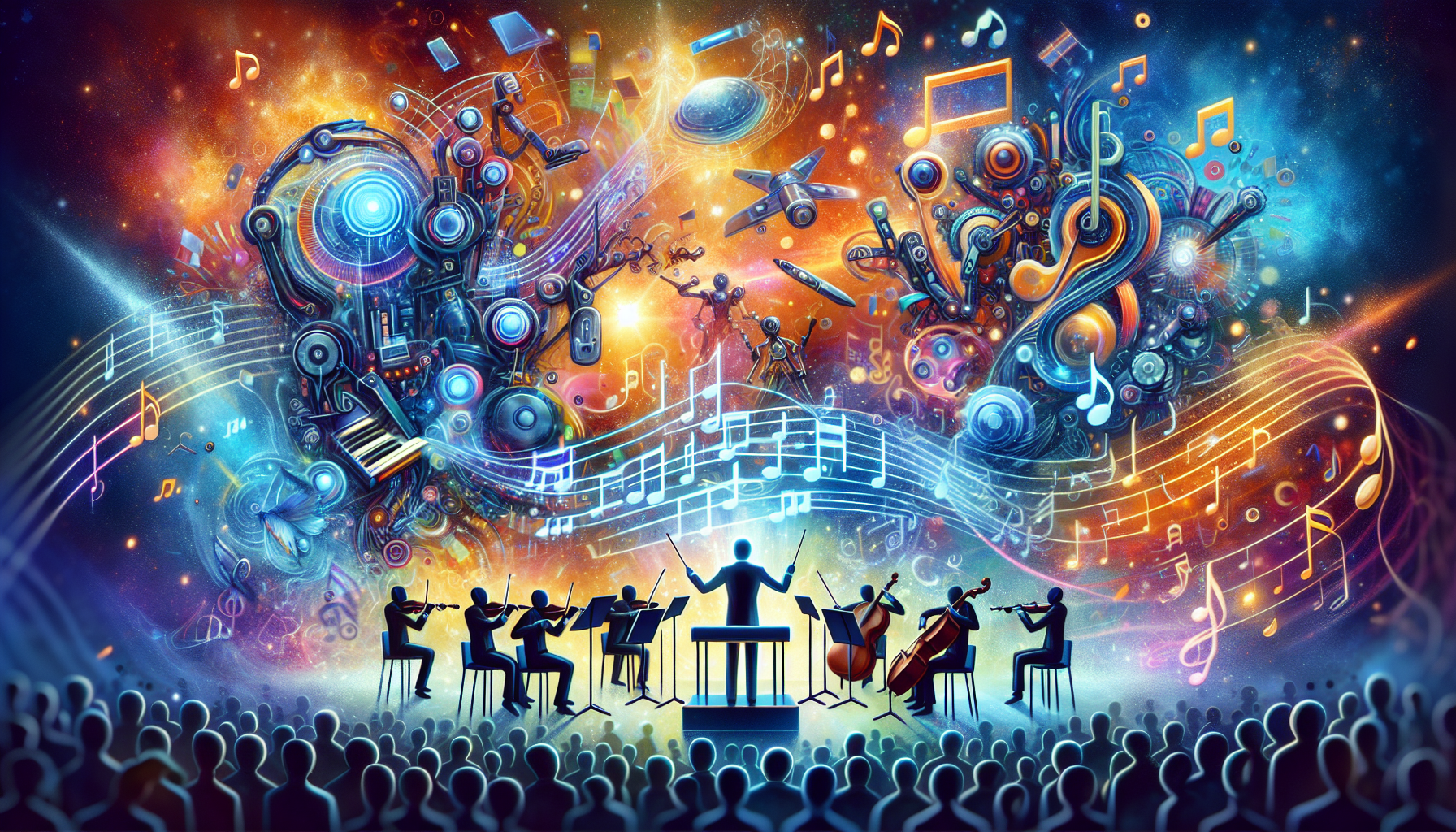
The AI Overture: Transforming the Entertainment and Music World
The music industry is experiencing a symphonic revolution, as artificial intelligence waltzes into the creative process. AI is changing how music is composed and produced, performing a tech-savvy pirouette that’s making human creators both curious and concerned about their future roles. Like conductor robots, these AI tools orchestrate compositions, but can they truly feel the melody?
From the Recording Studio to the Billboard Charts
AI’s impact isn’t limited to backstage operations; it’s out front, singing its own tune in music promotion and branding. Forget old-school PR spins—AI now crafts visual storytelling with the eloquence of a digital Shakespeare. It enhances music marketing with lightning speed, automating everything from sultry album covers to viral TikTok videos. The question is, will AI secure a Grammy for its album artwork?
The melody isn’t all smooth; AI’s presence has crescendoed into a legal orchestra of issues, especially regarding copyright and intellectual property. With AI-generated tunes skirting boundaries and sometimes cradling copyrighted materials, it’s become a courtroom opus for record labels and AI music companies. They’ve crafted a veritable symphony of legal battles, with each side hoping to hit a favorable note.
Artists Stand Their Ground and Future Innovations
In search of harmony, blockchain technology is being tuned to protect artists’ intellectual property. This high-tech metronome could timestamp creations and ensure every penny lands in the right purse. However, just as music can’t be confined, copyright issues can’t simply be boxed into a blockchain, leaving plenty of unintended jazz riffs to resolve.
Enter the artists, instruments in hand and voices raised; Billie Eilish, Stevie Wonder, and Nicki Minaj have taken to their digital soapboxes. They’re demanding AI companies to cease the unauthorized sampling of their voices and personas, a cause that reads like a provocative album cover itself. Their message is clear: AI should augment, not appropriate.
Yet, in a twist as pleasing as a surprise encore, AI companies argue their technology democratizes music-making. Platforms like Boomy, Musicfy, and AIVA are opening doors, inviting even tone-deaf aspirants to create without the obstacle of learning F# from E♭. It’s the new-age garage band fuel—but will it gain a cult following or fizzle into computer-generated white noise?






